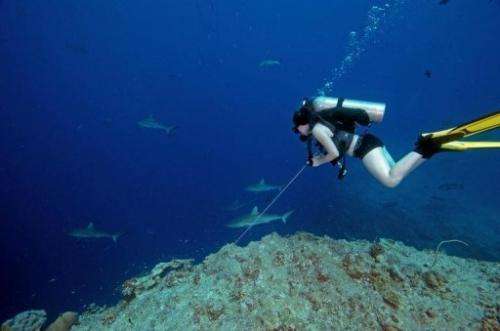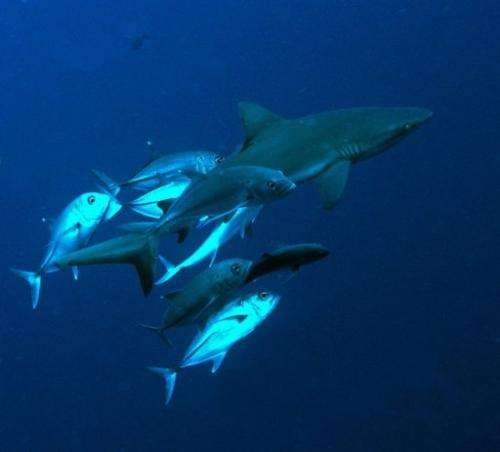Pacific's Palau looks at commercial fishing ban

Palau's president has proposed banning all commercial fishing in the Pacific nation's waters to create one of the world's largest marine reserves, covering an area roughly the size of France.
President Tommy Remengesau said the nation of 300 islands with a population of about 21,000 generated negligible revenue from foreign fishing vessels plying its waters and he preferred to concentrate on attracting tourists.
Remengesau, who was elected last November, said Palau was already regarded a a leader in marine conservation after creating the world's first shark sanctuary in 2009.
"Our vision is for an area that is so well protected that Palau becomes the world's largest marine sanctuary," he said this week.
"No longer will Palau be merely a shark sanctuary, it will be a sea sanctuary that protects all marine wildlife within Palau's exclusive economic zone (EEZ)."
The EEZ covers almost 630,000 square kilometres (240,000 square miles) of the northern Pacific, including world-renowned scuba diving and snorkelling sites.

Natural Resources Minister Umiich Sengebau said the country earned only about $5.0 million a year from the fishing industry, with about $4.0 million coming from tuna fishing, which is dominated by vessels from Japan and Taiwan.
"The president feels that Palau is shortchanged," Sengebau told AFP.
He said Palau licensed a total of 129 foreign fishing vessels in 2010 but Pacific island nations received only a fraction of the income generated by tuna captured in their waters.
Remengesau said the Asian Development Bank estimated the global tuna industry was worth $4.0 billion a year and only nine percent went to Pacific nations where most of the fish are caught.
"Revenue received from commercial fishing licences and taxes from commercial fishing is a drop in the bucket compared to the profits made by large fishing companies," he said in a statement.
"An EEZ-wide no commercial fishing zone would mean that only sustenance fishing by Palauan residents and tourism-related sport catch-and-release fishing would be permitted."
He said the proposal was in its early stages and the government would look at alternative revenue sources before implementing it, particularly tourism.
"Some of that revenue will be recovered simply through the increase in tourism that results from the incredible marine biodiversity that will be protected by our sea sanctuary," he said.
Palau has only one ageing patrol boat and Remengesau conceded that enforcing any ban would be difficult, but was confident it could be achieved.
(c) 2013 AFP


















